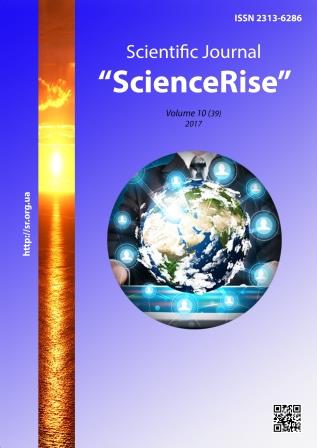Методика исследования иносказательной децентрированности говорящего при вторичной номинации объекта
DOI :
https://doi.org/10.15587/2313-8416.2017.113299Mots-clés :
иносказательная децентрация, вторичная номинация, говорящий, выразительные средства и семантическое разнообразиеRésumé
Статья посвящена спецификации понятия «иносказательная децентрация», определению параметров иносказательной децентрированности говорящего, а также их диагностических возможностей. Сделаны выводы: о тесной взаимной зависимости способности к вторичной номинации и способности к децентрации; о принципиальной значимости навыков вторичной номинации для формирования умения децентрироваться; об обратном влиянии децентрации на вторичную номинацию (увеличение выразительных средств и семантического разнообразия)
Références
Psihologicheskii leksikon. Obshhaya psihologiya (2005). Moscow, Per Se, SPb., Rech', 250.
Burov, A. A. (2000). Substantivnaya sintaksicheskaya nominaciya v russkom yazyke. Stavropol', 43.
Teliya, V.N. (1977). Vtorichnaya nominaciya i ee vidy. Yazykovaya nominaciya: vidy naimenovanii. Moscow, 129–222.
Pogozhina, I. N. (2015). Internal patterns of logical operations in Russian and Chinese preschool students: crosscultural analysis. National Psychological Journal, 17 (1), 70–78. doi: 10.11621/npj.2015.0108
Sobolyeva, K. V. (2015) Psykholohichni osoblyvosti detsentratsiyi u rannomu yunatskomu vitsi. Instytut psykholohii imeni H. S. Kostyuka NAPN Ukrayiny, 20.
Kabrin, V. I., Smetanova, Y. V., Zvezdina, E. A. (2015). Pilot research of transcultural psychosemantics of personally important communicative worlds of innovation- and entrepreneurship-oriented youth. Vestnik Tomskogo Gosudarstvennogo Universiteta, (394), 211–219. doi: 10.17223/15617793/394/34
Sosnyuk, O. P. (2002). Rolova detsentratsiya yak faktor transformatsii profesiynykh stereotypiv. Visnyk Kharkivskoho universytetu, 550 (Part 1), 241–242.
Lozova, O. M. (2009). Teoretychni pidstavy ta praktyka zastosuvannya tekhniky initsiyuvannya smysloutvorennya. Aktualni problemy psykholohiyi, 9 (Part 4), 249–256.
Zhol', K. K. (1984). Mysl. Slovo. Metafora. Problemy semantiki v filosofskom osveshhenii. Kyiv: Naukova dumka, 304.
Tulviste, P. (1988). Kulturno-istoricheskoe razvitie verbalnogo myshleniya. Tallinn: Valgus, 344.
Uznadze, D. N. (2001). Psihologiya ustanovki. SPb.: Piter, 416.
Frumkina, R. M. (1984). Cvet, smysl, shodstvo. Aspekty psiholingvisticheskogo analiza. Moscow: Nauka, 175.
Vygotskii, L. S. (1999). Myshlenie i rech. Moscow: Labirint, 352.
Téléchargements
Publié-e
Numéro
Rubrique
Licence
(c) Tous droits réservés Olga Lozova 2017

Cette œuvre est sous licence Creative Commons Attribution 4.0 International.
Our journal abides by the Creative Commons CC BY copyright rights and permissions for open access journals.
Authors, who are published in this journal, agree to the following conditions:
1. The authors reserve the right to authorship of the work and pass the first publication right of this work to the journal under the terms of a Creative Commons CC BY, which allows others to freely distribute the published research with the obligatory reference to the authors of the original work and the first publication of the work in this journal.
2. The authors have the right to conclude separate supplement agreements that relate to non-exclusive work distribution in the form in which it has been published by the journal (for example, to upload the work to the online storage of the journal or publish it as part of a monograph), provided that the reference to the first publication of the work in this journal is included.

